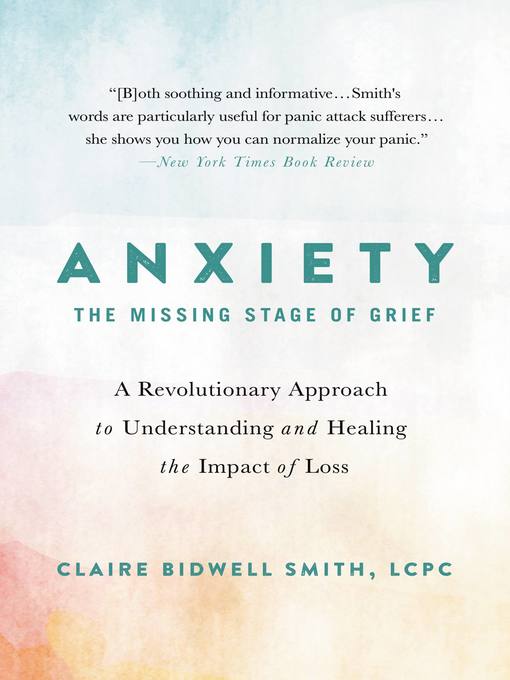
Anxiety--The Missing Stage of Grief
A Revolutionary Approach to Understanding and Healing the Impact of Loss
فرمت کتاب
ebook
تاریخ انتشار
2018
نویسنده
Claire Bidwell Smithنویسنده
Claire Bidwell Smithناشر
Hachette Booksناشر
Hachette Booksشابک
9780738234762
کتاب های مرتبط
- اطلاعات
- نقد و بررسی
- دیدگاه کاربران
نقد و بررسی

Fear and loathing and sickness unto death--it's enough to put a person into a fretful tailspin, the subject of this useful work of self-help.Why do so many people fall apart? As psychologist and grief therapist Smith (After This: When Life Is Over, Where Do We Go?, 2015, etc.) notes, it's likely that underlying the anxiety that produces such effects there's unresolved grief--e.g., a loved one has passed away, but in our culture's insistence on moving on, we have not adequately acknowledged and processed the passing. The author recounts that the "predominant symptom" she sees in those experiencing grief is not anger but anxiety--and if we don't know how to deal with grief, we know even less about anxiety apart from throwing medications at it. Smith assures readers that "the anxiety you are experiencing is normal," welcome words given that those experiencing anxiety too often feel they are doing so in isolation and shame. The author notes that while the brain is processing the separation, regret, and other emotions accompanying loss, that loss is also tangible: "We are forced to rearrange our lives to accommodate for the absence of this person." In discussing that rearrangement and those emotions, Smith turns from the canonical work of Elisabeth Kübler-Ross to more recent practitioners, such as Thomas Attig, who analyzes the changes that accompany loss, including, inevitably, changes in one's own identity, a potential cause of grief all its own. Sometimes awkward, sometimes obvious, Smith's book is formulaic, one story, anecdote, clinical note, and exercise following on the other ("Let's check in with your level of anxiety"; "Now let's get you writing"), and there's a sameness to the proceedings that can dull the luster of that insight. Still, that insight alone, linking anxiety to grief, is worth the price of admission.If Smith's ideas of "resilient grieving" help even one reader cope with the trauma and fearful thoughts of anxiety, she will have done a great service.
COPYRIGHT(2018) Kirkus Reviews, ALL RIGHTS RESERVED. (Online Review)

























دیدگاه کاربران